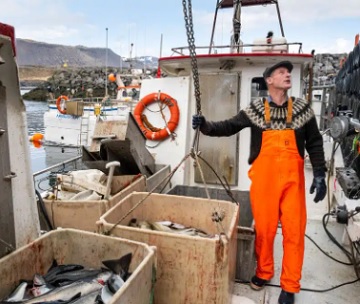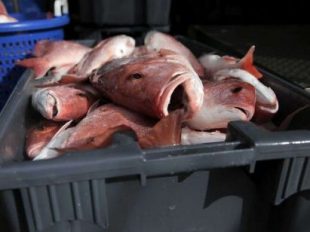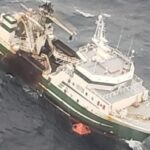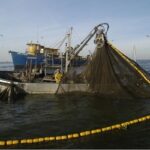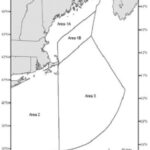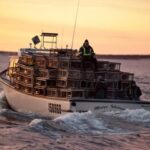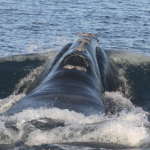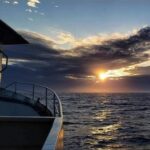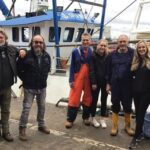Tag Archives: Fishery management
2024 Maine Scallop License Lottery Winners Announced
 The Maine Department of Marine Resources (DMR) has announced the latest winners of the state’s scallop license lotteries. Each winner is responsible for applying for a license within 30 days of notification. The new licenses are the result of a limited entry system established by the legislature and implemented through regulation in June 2018 that allows someone who did not hold a scallop license in the previous year to be eligible for one. This year there were 74 entries for dive licenses and 1,095 entries for drag licenses. With $35 of each lottery entry fee deposited into DMR’s Scallop Research Fund, a total of $40,915 was raised to support scallop research and management. The winners include the following. more, >>CLICK TO READ<< 09:24
The Maine Department of Marine Resources (DMR) has announced the latest winners of the state’s scallop license lotteries. Each winner is responsible for applying for a license within 30 days of notification. The new licenses are the result of a limited entry system established by the legislature and implemented through regulation in June 2018 that allows someone who did not hold a scallop license in the previous year to be eligible for one. This year there were 74 entries for dive licenses and 1,095 entries for drag licenses. With $35 of each lottery entry fee deposited into DMR’s Scallop Research Fund, a total of $40,915 was raised to support scallop research and management. The winners include the following. more, >>CLICK TO READ<< 09:24
Groundfish: Council Signs off on Amendment 25; Prepares for December Final Action on Framework 69 Under Cod Phase 1
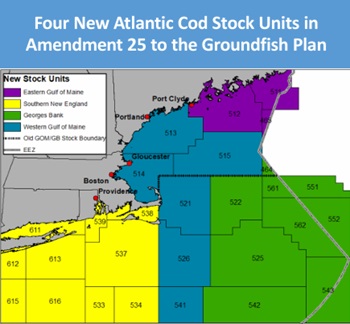 The New England Fishery Management Council took final action on Amendment 25 to the Northeast Multispecies (Groundfish) Fishery Management Plan (FMP) when it met September 24-26, 2024 in Gloucester, Massachusetts. The Council is now focused on Framework Adjustment 69 to the FMP. The framework is being developed to establish measures for the 2025 groundfish fishing year and, for certain stocks, 2026 and 2027 as well. The Council is scheduled to take final action on the framework at its December 3-5, 2024 meeting in Newport, Rhode Island. The 2025 groundfish fishing year begins on May 1. Charts, links, more, >>CLICK TO READ<< 13:32
The New England Fishery Management Council took final action on Amendment 25 to the Northeast Multispecies (Groundfish) Fishery Management Plan (FMP) when it met September 24-26, 2024 in Gloucester, Massachusetts. The Council is now focused on Framework Adjustment 69 to the FMP. The framework is being developed to establish measures for the 2025 groundfish fishing year and, for certain stocks, 2026 and 2027 as well. The Council is scheduled to take final action on the framework at its December 3-5, 2024 meeting in Newport, Rhode Island. The 2025 groundfish fishing year begins on May 1. Charts, links, more, >>CLICK TO READ<< 13:32
Labour needs to fix British fishing – will it stand by its principles now it is in power?
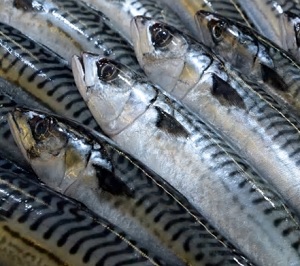 The question now is whether Labour will use its landslide majority to fix the extraordinary neglect of our marine environment that it previously lacked the votes for. Back in 2020, when the fisheries bill was making its way through parliament, Labour’s fisheries spokesperson, Luke Pollard, made the case that the prime objective of the bill should be sustainability: there should be a duty on ministers to take the advice of scientists when allocating fishing opportunities so as to avoid overfishing. He also argued that as the right to fish was a public asset, which ministers conceded during the course of the bill, preference should be given to the part of the fleet which had the highest levels of employment and the lowest environmental impact: the smaller boats, whose activities are limited naturally by the weather. more, >>CLICK TO READ 08:24
The question now is whether Labour will use its landslide majority to fix the extraordinary neglect of our marine environment that it previously lacked the votes for. Back in 2020, when the fisheries bill was making its way through parliament, Labour’s fisheries spokesperson, Luke Pollard, made the case that the prime objective of the bill should be sustainability: there should be a duty on ministers to take the advice of scientists when allocating fishing opportunities so as to avoid overfishing. He also argued that as the right to fish was a public asset, which ministers conceded during the course of the bill, preference should be given to the part of the fleet which had the highest levels of employment and the lowest environmental impact: the smaller boats, whose activities are limited naturally by the weather. more, >>CLICK TO READ 08:24
UK elects new government
 NFFO chief executive Mike Cohen had already made a series of key points ahead of the election, when the polls were clear that the UK was already heading for change. ‘Above all else, policy makers need to remember that fishing is about food. It is not a conservation problem. It is not a heritage activity, or a hobby. It is a modern industry that produces food,’ he said. ‘People are finally waking up to the fragility of a food supply system that is over-reliant on time-sensitive imports and the rapid, affordable international transport links that make them possible. The British fishing industry provides healthy, affordable, free-range food, with a carbon footprint that compares favourably to any other source of dietary protein.’ more, >>CLICK TO READ<< 11:49
NFFO chief executive Mike Cohen had already made a series of key points ahead of the election, when the polls were clear that the UK was already heading for change. ‘Above all else, policy makers need to remember that fishing is about food. It is not a conservation problem. It is not a heritage activity, or a hobby. It is a modern industry that produces food,’ he said. ‘People are finally waking up to the fragility of a food supply system that is over-reliant on time-sensitive imports and the rapid, affordable international transport links that make them possible. The British fishing industry provides healthy, affordable, free-range food, with a carbon footprint that compares favourably to any other source of dietary protein.’ more, >>CLICK TO READ<< 11:49
UK fishing industry to benefit from cutting-edge technology to help manage fish stocks
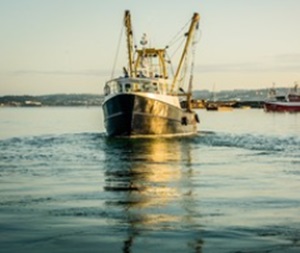 The sustainability of UK fish stocks will be better safeguarded through the use of technology to monitor and manage fishing activity in English waters, the government has announced today (13 May). The technology – known as Remote Electronic Monitoring (REM) – involves using camera, gear sensors and GPS units to make sure that catches are accurately recorded and fish are not unlawfully thrown back into the sea. The data captured will support the fishing industry to manage stocks sustainably and give retailers and consumers greater confidence about the sustainability of our fish. Volunteers within five priority fisheries will begin to use REM systems from this summer, with their work helping to refine the UK’s monitoring objectives and ensure the technology works for fishers. more, >>CLICK TO READ<< 06:02
The sustainability of UK fish stocks will be better safeguarded through the use of technology to monitor and manage fishing activity in English waters, the government has announced today (13 May). The technology – known as Remote Electronic Monitoring (REM) – involves using camera, gear sensors and GPS units to make sure that catches are accurately recorded and fish are not unlawfully thrown back into the sea. The data captured will support the fishing industry to manage stocks sustainably and give retailers and consumers greater confidence about the sustainability of our fish. Volunteers within five priority fisheries will begin to use REM systems from this summer, with their work helping to refine the UK’s monitoring objectives and ensure the technology works for fishers. more, >>CLICK TO READ<< 06:02
Fishery council considering Mayor Mitchell’s plea to open Northern Edge to scallopers
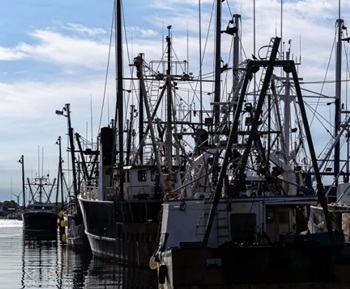 On Tuesday, Mitchell delivered testimony to the New England Fishery Management Council (NEFMC). He cited challenging years ahead for the scallop industry, which is being strained by a slump in prices and fewer days at sea for fishermen; and he stressed the importance of the scallop fishery as a foundational part of the port’s economy. “The industry would benefit greatly by adding these areas to its available fishing grounds.” The region under consideration is the northernmost portion of the broad and productive fishing grounds called Georges Bank. In 1994, the Northern Edge was closed to commercial fishing to protect habitat for spawning cod and other bottom dwelling fisheries. Thirty years later, scallop representatives told the council, groundfish populations like cod have continued to decline while the area has remained locked up to scallopers. more, >>CLICK TO READ<< 06:14
On Tuesday, Mitchell delivered testimony to the New England Fishery Management Council (NEFMC). He cited challenging years ahead for the scallop industry, which is being strained by a slump in prices and fewer days at sea for fishermen; and he stressed the importance of the scallop fishery as a foundational part of the port’s economy. “The industry would benefit greatly by adding these areas to its available fishing grounds.” The region under consideration is the northernmost portion of the broad and productive fishing grounds called Georges Bank. In 1994, the Northern Edge was closed to commercial fishing to protect habitat for spawning cod and other bottom dwelling fisheries. Thirty years later, scallop representatives told the council, groundfish populations like cod have continued to decline while the area has remained locked up to scallopers. more, >>CLICK TO READ<< 06:14
Mayor Mitchell advocates for scallopers
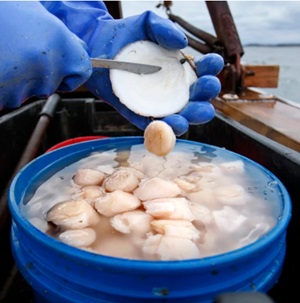 Mayor Jon Mitchell is advocating for the New England Fishery Management Council to open the Northern edge scallop grounds to New Bedford commercial fishermen. In a letter to Chairman of the Board, Eric Reid, Mitchell said that making these areas available would benefit the industry greatly and create a “key new source of scallops.” “While there are multiple species that are harvested by New Bedford fishing vessels, scallops are the prime drivers of economic activity within the Port of New Bedford,” Mitchell wrote. more, >>CLICK TO READ<< 12:54
Mayor Jon Mitchell is advocating for the New England Fishery Management Council to open the Northern edge scallop grounds to New Bedford commercial fishermen. In a letter to Chairman of the Board, Eric Reid, Mitchell said that making these areas available would benefit the industry greatly and create a “key new source of scallops.” “While there are multiple species that are harvested by New Bedford fishing vessels, scallops are the prime drivers of economic activity within the Port of New Bedford,” Mitchell wrote. more, >>CLICK TO READ<< 12:54
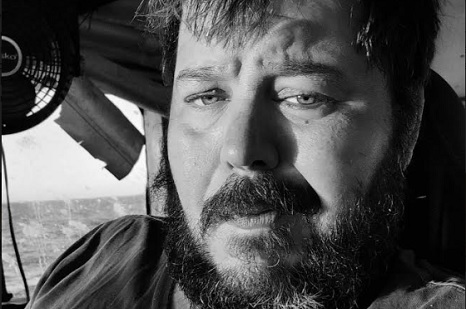
Well, the windmill agenda is damning us all. Fisherman Jerry Leeman
Well, the windmill agenda is damning us all. The evidence all points in the same direction from the standpoint of the sea. I’m a fisherman and have been all my life here in New England. I was raised on an island in Maine with a bunch of fishermen and fishing families. Everyone has their own style and way of harvesting the ocean. The unspoken truth is we all are for the betterment of the ocean, stewards of the sea by trade. That’s why we have management teams or supposed to which manage the stocks which the government and state control and not the actual harvesters. Here in New England, we are the most regulated fishermen in the world and that’s no lie. We have video tracking daily reporting and 100 % observer coverage. Your every move is being watched. All the fishermen are now switching their efforts and styles of groundfishing to fish without fishing is my best way to describe it. >click to read< 22:34
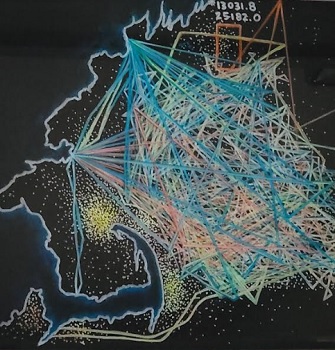
What’s wrong with the management?!! By Jerry Leeman
So, I’m using this piece of artwork, because I’m not driving 3 states away to pull up all my tracks. This is only a piece of artwork depicting a small percentage of the ground I’ve covered in the Gulf of Maine and George’s Bank. We all talk about the best science, while the best science is done when you have the best observations. That is the whole basis of science is study thru observations. How come a man like me who has over 14 years documented at sea in 21 years not have a voice in the management of our nation’s fishery? No one has ever asked me what I am seeing. They just hand me a piece of paper every time there’s a rule change. Then I figure out how I’m going to manage what little abundance they allot me. Please click to read the rest. >click to read< 15:07
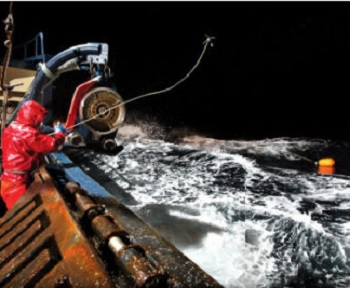
Choosing Winners and Losers in Alaska’s Crab Fishery
When the US government implemented the quota system in 2005, it awarded quota shares to fishers based on their catch histories. The shares, which provide exclusive harvest rights to a proportion of each year’s allowable catch, are transferrable, meaning owners can fish their share, lease it, or pool their share with others to save on the high costs of fishing. It’s a big difference from how the fishery was previously managed, when regulators focused more on controlling the total catch. That approach led to derby-style fishing, where vessels raced into Alaska’s remote and stormy seas during short winter openings. While the money could be good, the frantic fishing came at a high cost in lost lives and lost vessels. >click to read< 10:10
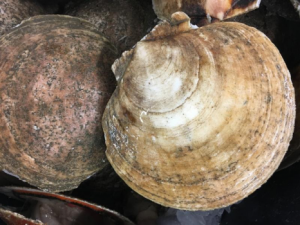
New rules for scallop fishery scheduled to take effect April 1 in Northern Gulf of Maine
A Feb. 17 presentation on upcoming changes to Northern Gulf of Maine scallop fishery management drew a number of New England fishermen to listen to scallop leaders from the New England Fishery Management Council and NOAA. The biggest change for scallop fishermen is that vessels fishing in Northern Gulf of Maine waters will be required to take industry-funded scallop observers on board when selected to do so. Additionally, a portion of Stellwagen Bank in Massachusetts Bay will open for scallop fishing. >click to read< 10:14
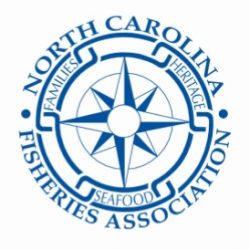
North Carolina Fisheries Association Weekly Update for January 31, 2022
Over the last few weeks, we’ve been taking a close look at a few, of the many, false claims, regarding the management of the southern flounder fishery, made by the NC Wildlife Federation. This week we’ll be looking at one of the most audacious statements they’ve made to date. The Wildlife Federation claims that “Amendment 2 is the first known effort to effectively reduce harvest in the commercial southern flounder fishery in history. Continue reading at the update. >Click here to read the Weekly Update<, to read all the updates >click here<, for older updates listed as NCFA >click here< 10:03

Looking Back: Nov.7, 1998 – “Conflict of interest, and fishery management”, By Nils Stolpe
This Looking Back features Nil’s insightful research into the funding source of fishery management bodies in the USA. This article was written in 1998, and the funding sources are still the same, although the monetary amounts are certainly different now. In light of the recent ASMFC /MAFMC allocation steal, covered in dec 20th posting on Fisherynation by Jim Lovgren, [who mistakenly stated that the management funding was by SK money, which is an import-based tax, it is actually Wallop-Breaux funding which is the tax on recreational gear and fuel]. This issue needs to see the light of day again, the conflict is clear, and now they’re using bad science against us. >click to read< 18:35
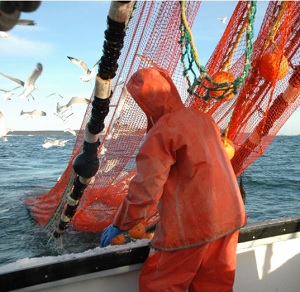
Gulf of Maine: Shrimp fishery to remain closed for three more years
For the eighth straight year, Maine’s commercial shrimp fishery will remain closed to harvesters. The Atlantic State Marine Fisheries Commission’s Northern Shrimp Section voted last week to keep the fishery shut down for at least three more years citing an assessment update that indicated the stock in the Gulf of Maine remains depleted. A commercial fishing moratorium has been in place since the 2014 season,,, >click to read< 08:30
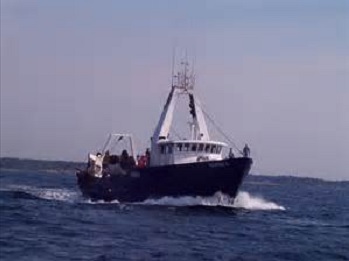
Looking Back: Mistrust between scientists, fishermen mars key mission
From the lightly swaying deck of his 98-foot trawler, Matt Stommel points out the scene of the crime, lit now in the deep orange of approaching sunset. Stommel’s boat, the Nobska, is docked on the Woods Hole waterfront here, with an easy view of the government laboratory charged with counting New England’s fish. It was from this perch, Stommel recalls, that he watched as workers marked a steel cable from an aging research vessel, the Albatross IV, on a freezing day in the winter of 2000. What he saw that day filled him with a skipper’s disgust. For the next two years, Stommel pleaded with scientists to check the cables and even offered to pay for the test himself. Last fall, the center admitted he was right,,, The episode, dubbed “trawlgate” on the docks, still casts a long shadow over New England’s imperiled fishery. >click to read< 07:20
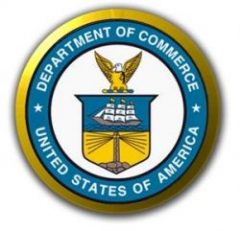
Commerce Department Announces 2021 Appointments to the Regional Fishery Management Councils
The U.S. Department of Commerce today announced the appointment of 31 members to the regional fishery management councils that partner with NOAA Fisheries to manage marine fishery resources. Established by the Magnuson-Stevens Fishery Conservation and Management Act, councils are responsible for developing region-specific fishery management plans that safeguard and enhance the nation’s fisheries resources. Each year, the Secretary of Commerce appoints approximately one-third of the total 72 appointed members to the eight,,, >click here to read< 15:03
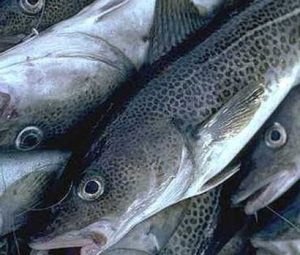
How Newfoundland’s wild fisheries have gone from plentiful to pitiful – How did we get here?
The headline in the daily paper at the end of January 2019 had said it all: Cod recovery still far off: DFO. In the case of cod, the same factors that had contributed to a hopeful comeback — thriving capelin and warming waters — had since swung in unfavourable directions. Fewer capelin prey and changing environmental conditions did not bode well for cod. Now, in 2021, the prognosis for the cod population, capelin and the environmental 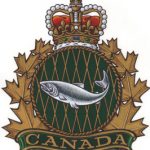 conditions remains no better. How did we get here? DFO science shows several factors are predominantly to blame for declining cod and capelin populations, including: natural causes, especially lack of capelin prey in the case of cod; high predation, particularly from fish (more so than seals), in the case of capelin; and warming ocean waters, among other environmental factors. >click to read< 08:26
conditions remains no better. How did we get here? DFO science shows several factors are predominantly to blame for declining cod and capelin populations, including: natural causes, especially lack of capelin prey in the case of cod; high predation, particularly from fish (more so than seals), in the case of capelin; and warming ocean waters, among other environmental factors. >click to read< 08:26
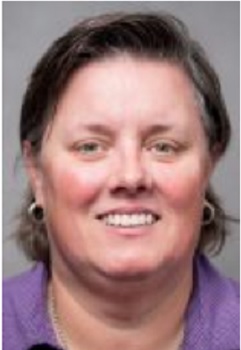
Kathy Rawls named new director of N.C. Division of Marine Fisheries
When Kathy Rawls becomes the new director of the N.C. Division of Marine Fisheries on May 1, she will have plenty of experience to draw on. Rawls has been with the Division for more than 25 years, the past seven as the Fisheries Management section chief. She also will be the first woman to head the agency since the Fisheries Commission Board became the Division of Commercial Fisheries in the late 1920s. “There are already a number of women in pivotal roles at the division, and I do feel a responsibility to represent them and other female colleagues, but I also know that gender is not part of the job description,” >click to read< 13:29
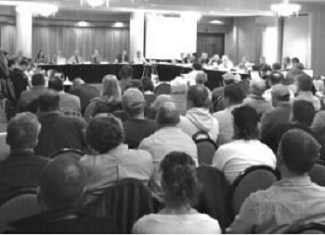
Term limits bumping four members from NEFMC
The New England Fishery Management Council will assume a decidedly different composition later this year when four councilors with almost 40 years combined tenure exit because of term limits. On Aug. 10, the terms of Chairman John Quinn of Massachusetts, Matthew McKenzie of Connecticut, Chairman John Quinn of Massachusetts, Matthew McKenzie of Connecticut, Vincent Balzano and Terry Alexander, both of Maine, are set to expire. >click to read< 17:50
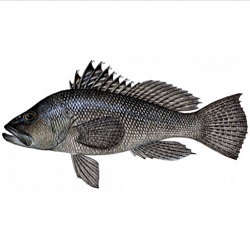
Mid-Atlantic Council Flirts With Overfishing
The relationship between the Mid-Atlantic Fishery Management Council (Council) and overfishing goes back a long way. In 1999, the Council adopted a summer flounder quota that had just an 18 percent probability of preventing overfishing, an action that led to the landmark court decision in Natural Resources Defense Council v. Daley, which established the principal that, to pass legal muster, a fishery management measure must have at least a 50 percent probability of achieving its conservation goals. Immediately after the court handed down that decision, the Council divorced itself from any management measure that might condone overfishing, and spent nearly two decades successfully rebuilding and conserving once-overfished stocks. At one point in the early 2010s, it was the only one of the eight regional fishery management councils that had completely ended overfishing, and didn’t preside over any overfished stocks. >click to read< 14:36

New DFO regulations, 30 major commercial stocks have been identified for rebuilding
Canada is putting into law a requirement that it rebuild depleted commercial fish stocks, starting with 17 stocks that include Atlantic cod off Newfoundland, spring spawning herring in the Gulf of St. Lawrence and three Pacific salmon stocks. They account for more than half the 30 major commercial stocks identified for specific protection in amended Fisheries Act regulations published Jan. 2. >click to read< 11:33
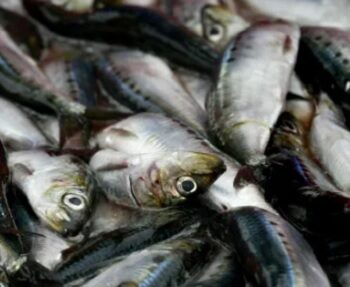
The sardine war hits a lull: Commercial fishing industry lands a victory in Pacific sardine management
The Pacific Fishery Management Council, which oversees fishing of Pacific sardines, voted unanimously in September to maintain the current sardine fishery management process that calls for reassessments after each year’s stock assessments. At the moment, the direct commercial sardine fishery is closed. “Fishery managers have failed to learn from the mistakes of history,” said Geoff Shester, senior scientist at marine conservation group Oceana,,, Diane Pleschner-Steele, executive director of the California Wetfish Producers Association, argues that sardines are not overfished and “the Council’s unanimous decision shows that they understand reality, the big picture.” >click to read< 14:27
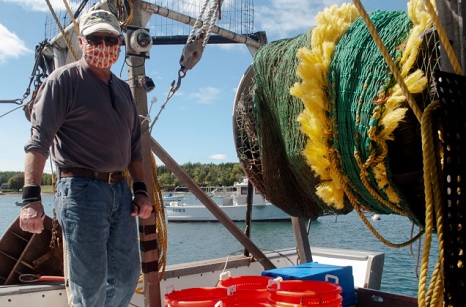
NEFMC will vote Sept. 30 on changing requirements for groundfish monitoring, fishermen have mixed responses
Commercial fisherman Randy Cushman walks on top of his boat where he measures fish in front of electronic monitoring cameras, pictured to the right. Cushman is among a handful of New England fishermen who use electronic monitoring instead of a traditional human observer to track what they catch and discard. The New England Fisheries Management Council (NEFMC) is scheduled to vote on changes to its groundfish management plan at a virtual meeting Sept. 30, culminating four years of research. “If we’re going to have accurate stock assessments, we need 100 percent coverage under this management system,” said Cushman. But, the prospect of increased monitoring concerns Terry Alexander, a fisherman who represents Maine on the NEFMC and operates his 62-foot boat out of Massachusetts. >click to read< 10:57
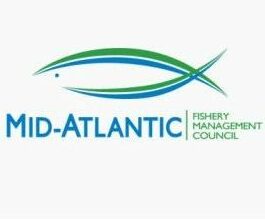
Just in! Reminder: Black Sea Bass Commercial State Allocation Amendment Webinars – Today @ 2:00 p.m. and Thursday @ 6:00 p.m.
Reminder: Mid-Atlantic Council to Hold Two Scoping Webinars for Black Sea Bass Commercial State Allocation Amendment, Monday, May 11, 2:00 – 3:30 p.m. Thursday, May 14, 6:00 – 7:30 p.m. The Mid-Atlantic Fishery Management Council will hold two scoping webinars to gather public input on a management action to consider potential modifications to the allocations of the black sea bass commercial quota among the states of Maine through North Carolina. Learn more about this action in the scoping announcement or at the links below. Links, and info. >click to read< 13:35
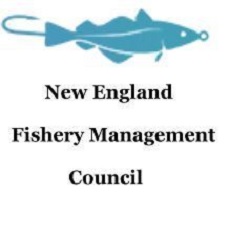
New England Fishery Management Council meeting in Portsmouth, N.H. January 28-30. 2020
The New England Fishery Management Council will be meeting at the Portsmouth Event Center, 100 Deer Street at 22 Portwalk Place, Portsmouth, N.H. To read the final agenda, >click here< Register for webinar >click here< to listen live. 12:48

Cod could choke catch of other fish
The New England Fishery Management Council approved the management framework that sets Northeast multispecies groundfish catch limits for 2020-2022 earlier this month. And local groundfishermen are looking at significant increases in several flounder stocks, American plaice and haddock. But the state of the cod fishery in the Gulf of Maine and on Georges Bank remains a point of contention. >click to read< 09:06

Canada: Government conflict of interest a threat to fish biodiversity: scientists
Canada has made disappointingly little progress in preserving the variety of life in its oceans largely because of a contradiction in the federal department that’s supposed to protect it, says a group of senior scientists. “The (Department of Fisheries and Oceans) is charged with conflicting responsibilities,” said Jeff Hutchings, a marine biologist at Dalhousie University in Nova Scotia. “On the one hand, they’re there to protect and conserve. On the other hand, they are charged with the responsibility of exploiting fish stocks.” >click to read< 08:40
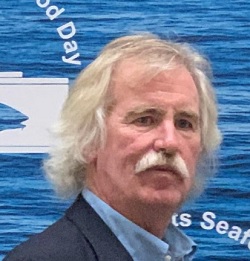
Why aren’t they there? Cod still overfished, feds say
The federal government last week released data showing that cod stocks in the area remain overfished. “Overfishing is occurring”, says NOAA, “Abundance is very low, says Mass DMF Director David Pierce, “It just doesn’t make sense right now that the cod hasn’t rebuilt,” Fisherman Ed Barrett added. Angela Sanfilippo, president of the Gloucester Fishermen’s Wives Association, called cod a “bycatch,” citing an abundance of haddock over the past 18 months, and said fishing fleets operate under strict regulation. >click to read<






